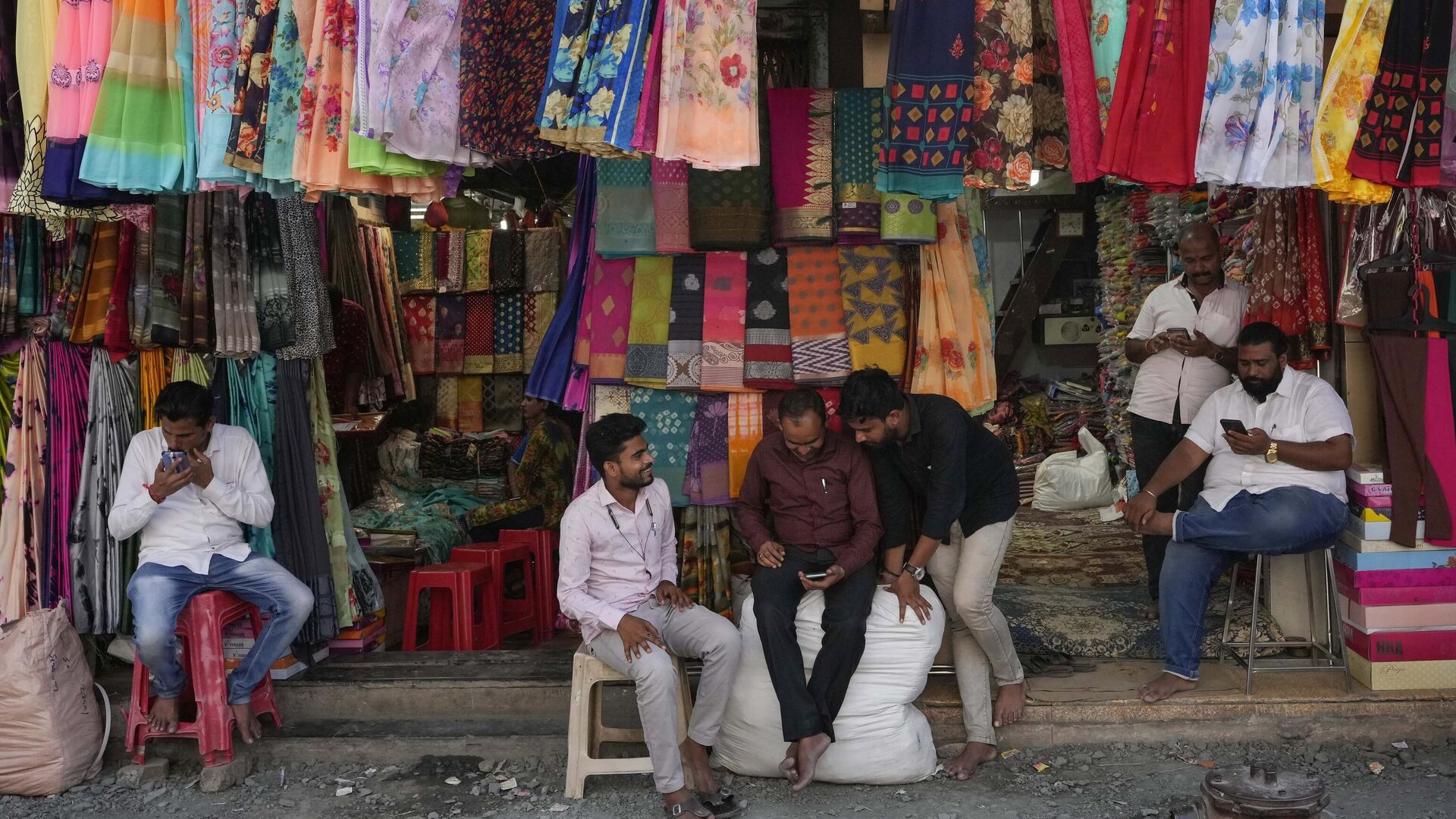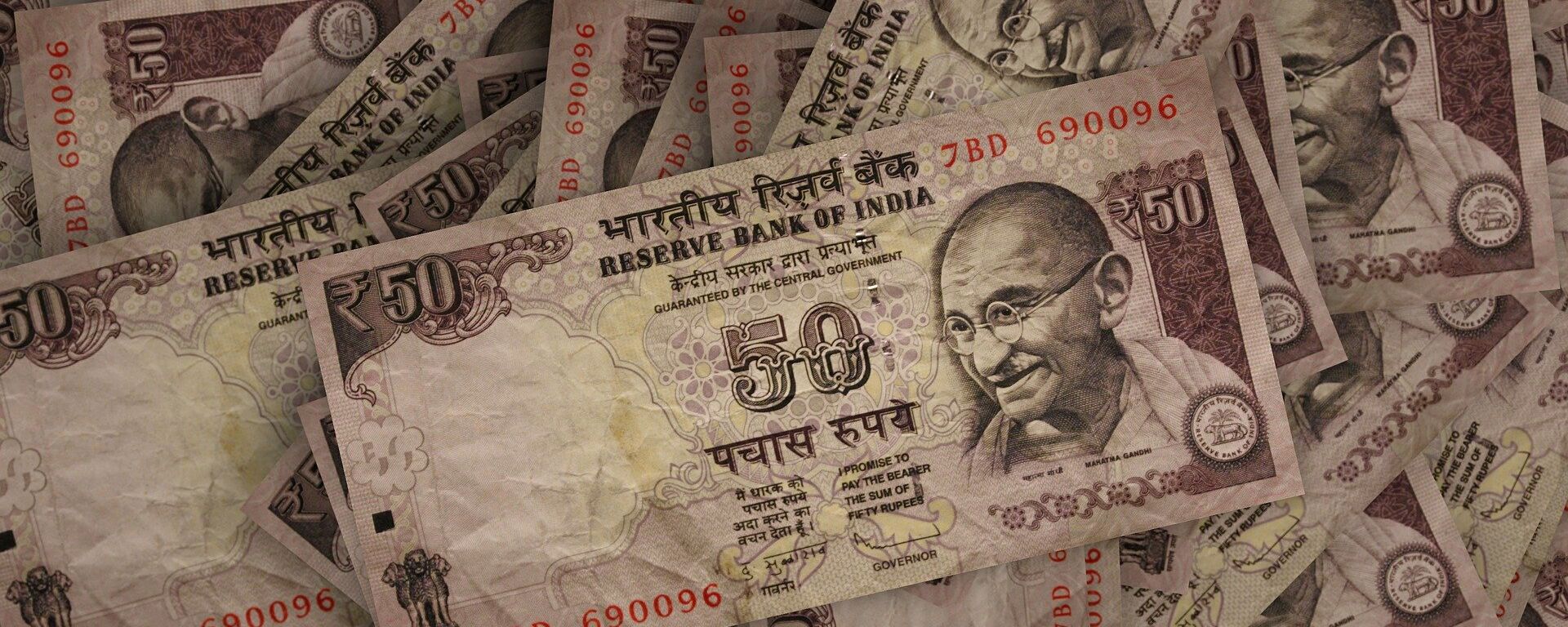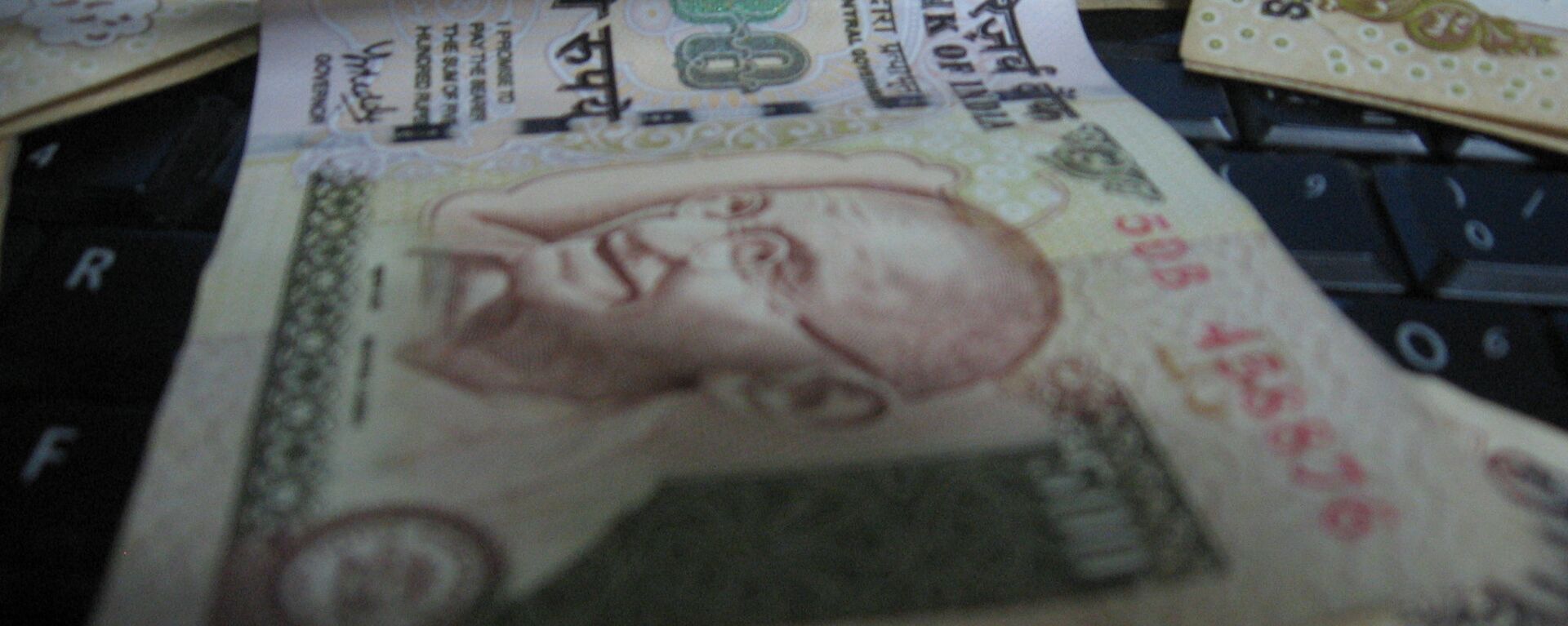https://sputniknews.in/20230412/rupee-trading-boosts-financial-inclusion-in-global-south-indian-diplomat-1519111.html
Rupee Trading Boosts ‘Financial Inclusion’ in Global South: Indian Diplomat
Rupee Trading Boosts ‘Financial Inclusion’ in Global South: Indian Diplomat
Sputnik India
The ongoing push by India to encourage trading in rupee and other local currencies is promoting “financial inclusion” in the Global South, an Indian diplomat told Sputnik on Wednesday.
2023-04-12T19:16+0530
2023-04-12T19:16+0530
2023-05-16T00:17+0530
trade in national currencies
rupee-rouble trade
india
brics
china
russia
global south
dedollarisation
business & economy
https://cdn1.img.sputniknews.in/img/07e7/04/0c/1522159_0:313:3084:2048_1920x0_80_0_0_21fecc6db2778fd2e558a2dab87d6658.jpg
The ongoing push by India to encourage trade in the Indian rupee and other local currencies is promoting “financial inclusion” in the Global South, an Indian diplomat told Sputnik on Wednesday.The diplomat added that expanding the scope of rupee trading doesn't mean that New Delhi is “discarding” the US dollar altogether.Sinha was one the main speakers at a conference titled "India’s G20 Moment: Forging an Inclusive World Order," organized by the New Delhi-based India Writes Network and the Centre for Global India Insights (CGII).The Indian official underscored that achieving “financial inclusion” for countries of the Global South is one of the main priorities of India’s G20 presidency, as stated by Prime Minister Narendra Modi.Sinha also highlighted that New Delhi sought inputs from almost every low and middle-income nation on their respective concerns in the lead-up to the Voice of the Global South Summit hosted by India in January.Over 125 countries attended the summit.Trade in National CurrenciesThe push towards ditching the US dollar and switching to trading in local currencies has been accelerated by the Western sanctions against Russia following the start of its special military operation in Ukraine last February.The sanctions led to a spike in global food and fuel prices amid efforts to phase out Russian commodities from global supply chains. However, most developing countries didn’t accept the Western sanctions and are looking at local currency trade to circumvent them.The push towards de-dollarization is being led by BRICS countries, with the bloc reportedly mulling the idea of floating a currency of its own. China has been looking to internationalize the yuan, while Russia has been encouraging trade in its currency the ruble.For its part, India’s new foreign trade policy, released this month, calls for encouraging the use of the rupee in bilateral trade and investment deals with other countries.While the push towards de-dollarization is expected to erode the hegemony of the US dollar, it still remains the most dominant currency in the global financial architecture.As per the International Monetary Fund (IMF), the dollar’s share of global foreign-exchange reserves in central banks fell below 59 percent in 2021, marking a two-decade low.
https://sputniknews.in/20230331/de-dollarization-push-indias-new-foreign-trade-policy-to-encourage-rupee-1381160.html
https://sputniknews.in/20230405/rupee-ruble-trade-is-way-out-of-western-blockade-russian-industry-chamber-head-1433125.html
india
china
russia
global south
Sputnik India
feedback.hindi@sputniknews.com
+74956456601
MIA „Rossiya Segodnya“
2023
Dhairya Maheshwari
https://cdn1.img.sputniknews.in/img/07e6/0c/13/138962_0:0:641:640_100x100_80_0_0_2cb44360dbcdf6d84bf4b299cd045917.jpg
Dhairya Maheshwari
https://cdn1.img.sputniknews.in/img/07e6/0c/13/138962_0:0:641:640_100x100_80_0_0_2cb44360dbcdf6d84bf4b299cd045917.jpg
News
en_IN
Sputnik India
feedback.hindi@sputniknews.com
+74956456601
MIA „Rossiya Segodnya“
Sputnik India
feedback.hindi@sputniknews.com
+74956456601
MIA „Rossiya Segodnya“
Dhairya Maheshwari
https://cdn1.img.sputniknews.in/img/07e6/0c/13/138962_0:0:641:640_100x100_80_0_0_2cb44360dbcdf6d84bf4b299cd045917.jpg
g20 summit, g20 countries, g20 india, trade in local currencies, rupee rouble trade, rupee rouble trade mechanism
g20 summit, g20 countries, g20 india, trade in local currencies, rupee rouble trade, rupee rouble trade mechanism
Rupee Trading Boosts ‘Financial Inclusion’ in Global South: Indian Diplomat
19:16 12.04.2023 (Updated: 00:17 16.05.2023) Longread
India's Prime Minister Narendra Modi has said that India would strive to address the issues of the Global South, including the food and fuel crisis, during its G20 presidency.
The ongoing push by India to encourage trade in the Indian rupee and other local currencies is promoting “financial inclusion” in the Global South, an Indian diplomat told Sputnik on Wednesday.
“We have begun trading in rupees with nearly 30 countries. This helps to address the problems of food, fuel and fertilizers,” said Ashish Sinha, a joint secretary at the Ministry of External Affairs (MEA) at the G20 secretariat.
The diplomat added that expanding the scope of rupee trading doesn't mean that New Delhi is “discarding” the US dollar altogether.
Sinha was one the main speakers at a conference titled "India’s G20 Moment: Forging an Inclusive World Order," organized by the New Delhi-based India Writes Network and the Centre for Global India Insights (CGII).
Sinha noted that besides the growing momentum of trading in local currencies among low and middle-income nations, India’s domestic payments system United Payments Interface (UPI), is also being increasingly used for carrying out cross-border trade and sending remittances.
The Indian official underscored that achieving “financial inclusion” for countries of the Global South is one of the main priorities of India’s G20 presidency, as stated by Prime Minister Narendra Modi.
Sinha also highlighted that New Delhi sought inputs from almost every low and middle-income nation on their respective concerns in the lead-up to the Voice of the Global South Summit hosted by India in January.
Over 125 countries attended the summit.
Trade in National Currencies
The push towards ditching the US dollar and switching to trading in local currencies has been accelerated by the Western sanctions against Russia following the start of its special military operation in Ukraine last February.
The sanctions led to a spike in global food and fuel prices amid efforts to
phase out Russian commodities from global supply chains. However, most developing countries didn’t accept the Western sanctions and are looking at local currency trade to circumvent them.
The push towards de-dollarization is being led by BRICS countries, with the bloc reportedly mulling the idea of floating a currency of its own. China has been looking to internationalize the yuan, while Russia has been encouraging trade in its currency the ruble.
For its part, India’s new foreign trade policy, released this month, calls for encouraging the use of the rupee in bilateral trade and investment deals with other countries.
While the push towards de-dollarization is expected to erode the hegemony of the US dollar, it still remains the most dominant currency in the global financial architecture.
As per the International Monetary Fund (IMF), the dollar’s share of global foreign-exchange reserves in central banks fell below 59 percent in 2021, marking a two-decade low.




